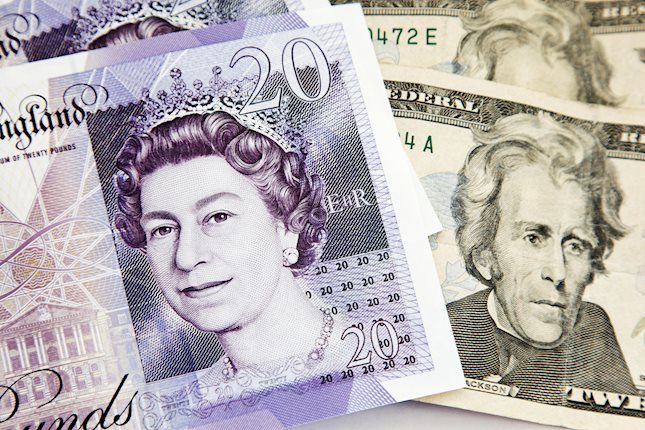- EUR/GBP falls after the release of higher-than-expected UK Consumer Price Index data.
- The UK CPI inflation climbed to 2.3% YoY in October, the highest in six months, up from 1.7% in September.
- German Producer Price Index fell by 1.1% YoY in October, marking the 16th consecutive period of producer deflation.
EUR/GBP loses ground to near 0.8330 during the early European hours. The Pound Sterling (GBP) appreciates following the stronger Consumer Price Index (CPI) data from the United Kingdom (UK) released on Wednesday.
The UK CPI inflation climbed to 2.3% year-over-year in October, the highest in six months, up from 1.7% in September and surpassing forecasts of 2.2%. On a monthly basis, the CPI increased by 0.6% after remaining unchanged in September. Meanwhile, the annual Core CPI, which excludes volatile food and energy prices, rose to 3.3% during the same period, exceeding market expectations of 3.1%. Additionally, the Retail Price Index increased by 3.4% year-over-year, compared to 2.7% in September.
In Germany, the Producer Price Index (PPI) fell by 1.1% year-on-year in October, following a 1.4% decline the previous month, in line with market expectations. This marks the 16th consecutive period of producer deflation. On a monthly basis, producer prices rose by 0.2%, rebounding from a 0.5% drop in September, also matching market estimates.
Since June, the ECB has reduced rates three times as inflation approaches its 2% target, although growth forecasts have been downgraded twice. Markets largely anticipate a 25-basis-point rate cut next month, with a smaller chance of a more significant reduction.
On Wednesday, ECB President Christine Lagarde is set to deliver the opening remarks at the ECB’s Conference on Financial Stability and Macroprudential Policy in Frankfurt. Investors will also be closely watching the preliminary Purchasing Managers’ Index (PMI) figures from the Eurozone and Germany, which are scheduled for release on Friday.
Economic Indicator
Consumer Price Index (YoY)
The United Kingdom (UK) Consumer Price Index (CPI), released by the Office for National Statistics on a monthly basis, is a measure of consumer price inflation – the rate at which the prices of goods and services bought by households rise or fall – produced to international standards. It is the inflation measure used in the government’s target. The YoY reading compares prices in the reference month to a year earlier. Generally, a high reading is seen as bullish for the Pound Sterling (GBP), while a low reading is seen as bearish.
Read more.Last release: Wed Nov 20, 2024 07:00
Frequency: Monthly
Actual: 2.3%
Consensus: 2.2%
Previous: 1.7%
Source: Office for National Statistics
The Bank of England is tasked with keeping inflation, as measured by the headline Consumer Price Index (CPI) at around 2%, giving the monthly release its importance. An increase in inflation implies a quicker and sooner increase of interest rates or the reduction of bond-buying by the BOE, which means squeezing the supply of pounds. Conversely, a drop in the pace of price rises indicates looser monetary policy. A higher-than-expected result tends to be GBP bullish.
Information on these pages contains forward-looking statements that involve risks and uncertainties. Markets and instruments profiled on this page are for informational purposes only and should not in any way come across as a recommendation to buy or sell in these assets. You should do your own thorough research before making any investment decisions. FXStreet does not in any way guarantee that this information is free from mistakes, errors, or material misstatements. It also does not guarantee that this information is of a timely nature. Investing in Open Markets involves a great deal of risk, including the loss of all or a portion of your investment, as well as emotional distress. All risks, losses and costs associated with investing, including total loss of principal, are your responsibility. The views and opinions expressed in this article are those of the authors and do not necessarily reflect the official policy or position of FXStreet nor its advertisers. The author will not be held responsible for information that is found at the end of links posted on this page.
If not otherwise explicitly mentioned in the body of the article, at the time of writing, the author has no position in any stock mentioned in this article and no business relationship with any company mentioned. The author has not received compensation for writing this article, other than from FXStreet.
FXStreet and the author do not provide personalized recommendations. The author makes no representations as to the accuracy, completeness, or suitability of this information. FXStreet and the author will not be liable for any errors, omissions or any losses, injuries or damages arising from this information and its display or use. Errors and omissions excepted.
The author and FXStreet are not registered investment advisors and nothing in this article is intended to be investment advice.
Recommended content
Editors’ Picks

EUR/USD extends losses to 1.0550 after ECB Negotiated Wages data
EUR/USD holds lower ground near 1.0550 in European trading on Wednesday. The US Dollar resurgence alongside the US Treasury bond yields higher weighs on the pair. Meanwhile, ECB reported Negotiated Wage Rates rose 5.42% in Q3 but this data failed to support the euro.

GBP/USD reverses toward 1.2650, erases UK CPI-led gains
GBP/USD is falling back toward 1.2650 in the European session on Wednesday, having erased UK CPI inflation-data-led gains. The data from the UK showed that the annual inflation, as measured by the change in the CPI, rose to 2.3% in October from 1.7% in September. Fedspeak awaited.

Gold price moves away from one-week top on rising US bond yields, modest USD strength
Gold price retreats after touching a one-and-half-week top earlier this Wednesday and drops to a fresh daily low, below the $2,630 level heading into the European session. A goodish pickup in the US Treasury bond yields, bolstered by bets for a less aggressive policy easing by the Fed, revives the USD demand and undermines demand for the non-yielding yellow metal.

Why is Bitcoin performing better than Ethereum? ETH lags as BTC smashes new all-time high records
Bitcoin has outperformed Ethereum in the past two years, setting new highs while the top altcoin struggles to catch up with speed. Several experts exclusively revealed to FXStreet that Ethereum needs global recognition, a stronger narrative and increased on-chain activity for the tide to shift in its favor.

Sticky UK services inflation to keep BoE cutting gradually
Services inflation is set to bounce around 5% into the winter, while headline CPI could get close to 3% in January. That reduces the chance of a rate cut in December, but in the spring, we think there is still a good chance the Bank of England will accelerate its easing cycle.

Best Forex Brokers with Low Spreads
VERIFIED Low spreads are crucial for reducing trading costs. Explore top Forex brokers offering competitive spreads and high leverage. Compare options for EUR/USD, GBP/USD, USD/JPY, and Gold.